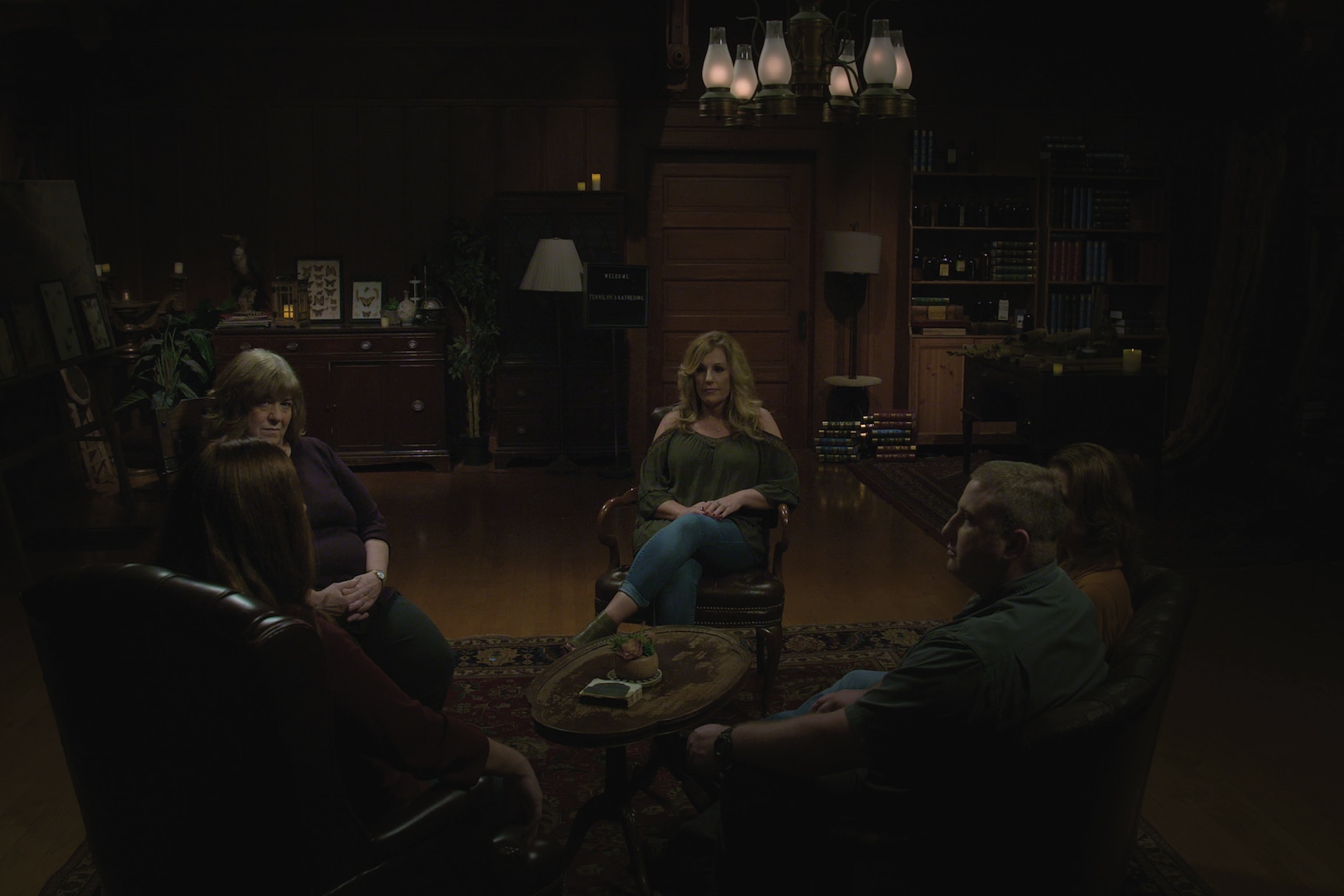Netflix’s ‘Haunted’ Dives Into True Crime — And Many Viewers Aren’t Buying It
The series has skeptics wonder to what extent the show is based on actual events, especially when it comes to the events of the second episode, "Slaughterhouse."

The endless slew of paranormal horror shows available on streaming services range from terrifying to ridiculous. A recent entry into the genre, Netflix's "Haunted” (not to be confused with “The Haunting of Hill House” or Discovery’s “A Haunting”), recreates scenes from supernatural events with stark and often ultra-violent drama. But one particular episode of the series has fact-checkers wondering just how many of the stories are fabricated.
Each episode of "Haunted" begins with the statement that, "The following is a true story," matching the series' tagline: "Real people, real stories, real horror." The second episode of the series, titled "Slaughterhouse," tells the story of an accursed family in upstate New York — the time period of the depicted events was vaguely identified as "the 1970s". Sadie and Terrilyn discuss what it was like growing up with a deeply abusive father who tortured and killed "stray" wanderers without families in the area and buried their bodies in the woods nearby.
The pair also recalls their nefarious patriarch performing dark, Satanic rituals with the aid of their mother. With an ever-growing body count, the sisters are convinced the house itself became haunted by the ghosts of their dad's victims.
Later in the episode, Sadie’s son, Jacob, claims that he was groomed by his grandfather to become a serial killer himself. Almost three decades later, the unnamed, terminally ill father is killed by the mother who claimed the house had commanded her to murder. Jacob was later compelled to destroy the evidence of the killings to make the house "livable."
As noted in Mashable's investigation into the program, immediately upon the episode's release skeptics on social media began voicing doubts about the veracity of the tale spun on the show.
On Reddit, more debate about the show's subjects ensued.
"After watching episode 2, I guarantee the entire show is scripted," one user commented. "I grew up and currently live in upstate NY. There would be some kind of rumors circulating at the very least if this actually happened.”
Another user wrote: “Even for fiction, this seemed like it was written by a junior high school kid. There were so many gaping holes and ridiculously improbably plot lines that I find it hard to believe the episode even aired. Let alone promoted as a ‘true story.’”
Criticisms of the show's vague descriptions of the crimes prompted a response from Brett-Patrick Jenkins, one of the series’ executive producers, best known for his work on “Lure,” an Amazon horror series. He has refused to speak with reporters on the record about the show, however.
"Thousands of people have reached out to me about #Haunted on Netflix," Jenkins tweeted on Oct. 23. "Know this. Everyone who participated in the show is 100% real. The stories happened to them. Life doesn't always have a perfect ending. It's not always just about telling someone, but finding someone to listen."
He addressed the show again in another tweet posted the following day.
"Depending on sensitive factors beyond my personal control," he wrote. "I may comment on a few items surrounding #Haunted on #Netflix. For now, know all the stories, including Slaughterhouse, are indeed, verified on multiple levels."
Jenkins has also assured audiences that police were notified about the claims made by the episode's subjects amidst other vague statements about the ramifications of discussing the crimes.
Netflix, meanwhile, has not offered any comment about contacting the police or the extent to which the show is fictional — nor has anyone else from the crew of "Haunted."
Requests for information on the show's fact-checking process have received no responses from reporters, while others' attempts to check with police on the status of an investigation were met with bureaucratic runarounds.
“I spoke with our Bureau of Criminal Investigation and they have not received any information from the producers or Netflix in regards to the alleged crimes that were portrayed on this program," New York State Police Director of Public Information Beau Duffy told Mashable.
At this point it remains unclear if the "facts" of the episode are simply untrue, if Jenkins has been forbidden from speaking due to an ongoing investigation or if something else — perhaps something far more sinister — is going on.
If the events are fabricated, experts warn that the show may actually be hurting the chances of solving similar cold cases.
“These falsified true accounts hurt the investigators who put their heart and soul into investigating the truths in the case to begin with,” Kenneth Mains, the founder and president of the American Investigative Society of Cold Cases, told Mashable. “The last thing we need as investigators is to have to deal with falsified truths.”
[Photo Credit: Netflix]

























